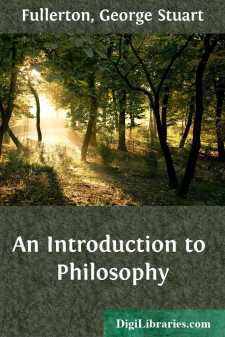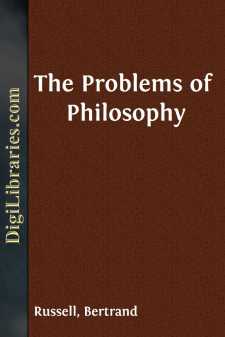Categories
- Antiques & Collectibles 13
- Architecture 36
- Art 48
- Bibles 22
- Biography & Autobiography 813
- Body, Mind & Spirit 142
- Business & Economics 28
- Children's Books 17
- Children's Fiction 14
- Computers 4
- Cooking 94
- Crafts & Hobbies 4
- Drama 346
- Education 46
- Family & Relationships 57
- Fiction 11829
- Games 19
- Gardening 17
- Health & Fitness 34
- History 1377
- House & Home 1
- Humor 147
- Juvenile Fiction 1873
- Juvenile Nonfiction 202
- Language Arts & Disciplines 88
- Law 16
- Literary Collections 686
- Literary Criticism 179
- Mathematics 13
- Medical 41
- Music 40
- Nature 179
- Non-Classifiable 1768
- Performing Arts 7
- Periodicals 1453
- Philosophy 64
- Photography 2
- Poetry 896
- Political Science 203
- Psychology 42
- Reference 154
- Religion 513
- Science 126
- Self-Help 84
- Social Science 81
- Sports & Recreation 34
- Study Aids 3
- Technology & Engineering 59
- Transportation 23
- Travel 463
- True Crime 29
Beyond Good and Evil
Categories:
Description:
Excerpt
PREFACE
SUPPOSING that Truth is a woman—what then? Is there not ground for suspecting that all philosophers, in so far as they have been dogmatists, have failed to understand women—that the terrible seriousness and clumsy importunity with which they have usually paid their addresses to Truth, have been unskilled and unseemly methods for winning a woman? Certainly she has never allowed herself to be won; and at present every kind of dogma stands with sad and discouraged mien—IF, indeed, it stands at all! For there are scoffers who maintain that it has fallen, that all dogma lies on the ground—nay more, that it is at its last gasp. But to speak seriously, there are good grounds for hoping that all dogmatizing in philosophy, whatever solemn, whatever conclusive and decided airs it has assumed, may have been only a noble puerilism and tyronism; and probably the time is at hand when it will be once and again understood WHAT has actually sufficed for the basis of such imposing and absolute philosophical edifices as the dogmatists have hitherto reared: perhaps some popular superstition of immemorial time (such as the soul-superstition, which, in the form of subject- and ego-superstition, has not yet ceased doing mischief): perhaps some play upon words, a deception on the part of grammar, or an audacious generalization of very restricted, very personal, very human—all-too-human facts. The philosophy of the dogmatists, it is to be hoped, was only a promise for thousands of years afterwards, as was astrology in still earlier times, in the service of which probably more labour, gold, acuteness, and patience have been spent than on any actual science hitherto: we owe to it, and to its "super-terrestrial" pretensions in Asia and Egypt, the grand style of architecture. It seems that in order to inscribe themselves upon the heart of humanity with everlasting claims, all great things have first to wander about the earth as enormous and awe-inspiring caricatures: dogmatic philosophy has been a caricature of this kind—for instance, the Vedanta doctrine in Asia, and Platonism in Europe. Let us not be ungrateful to it, although it must certainly be confessed that the worst, the most tiresome, and the most dangerous of errors hitherto has been a dogmatist error—namely, Plato's invention of Pure Spirit and the Good in Itself. But now when it has been surmounted, when Europe, rid of this nightmare, can again draw breath freely and at least enjoy a healthier—sleep, we, WHOSE DUTY IS WAKEFULNESS ITSELF, are the heirs of all the strength which the struggle against this error has fostered. It amounted to the very inversion of truth, and the denial of the PERSPECTIVE—the fundamental condition—of life, to speak of Spirit and the Good as Plato spoke of them; indeed one might ask, as a physician: "How did such a malady attack that finest product of antiquity, Plato? Had the wicked Socrates really corrupted him? Was Socrates after all a corrupter of youths, and deserved his hemlock?" But the struggle against Plato, or—to speak plainer, and for the "people"—the struggle against the ecclesiastical oppression of millenniums of Christianity (FOR CHRISTIANITY IS PLATONISM FOR THE "PEOPLE"), produced in Europe a magnificent tension of soul, such as had not existed anywhere previously; with such a tensely strained bow one can now aim at the furthest goals....












